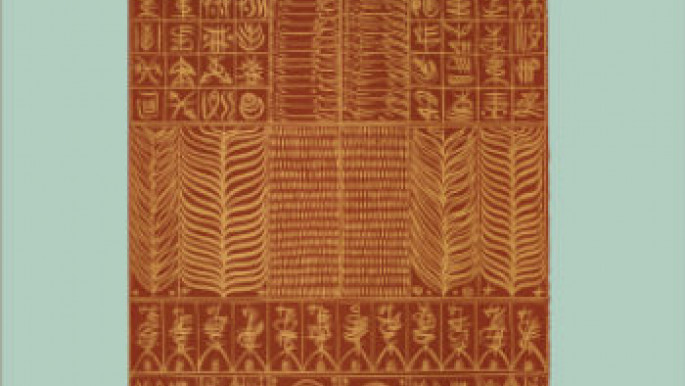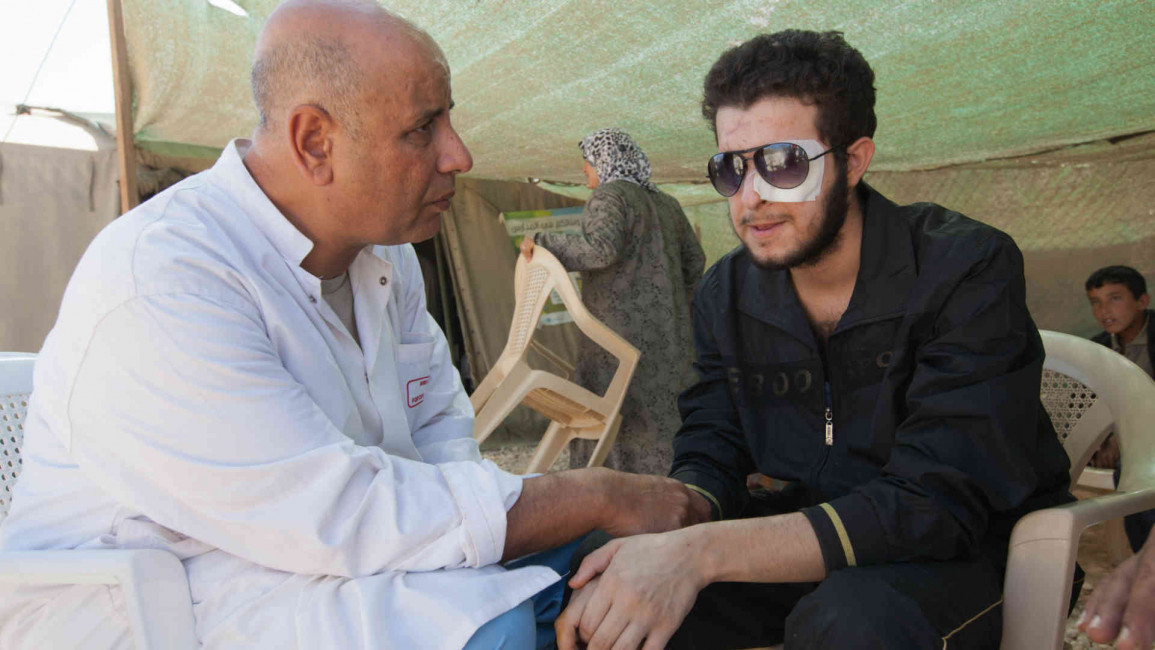
Lie down on a couch with the Arabic Dr Freud
The Arabic Freud: Psychoanalysis and Islam in Modern Egypt by Professor Omina El Shakry is a fascinating exploration into the forgotten world of psychology and psychoanalysis in post-Second World War Egypt.
When reading classical Sufi Islamic texts, I have always been struck by the fusion of mysticism with personal psychology. The theories of Sufi mystic and Islamic jurist Al Ghazali (1058-1111AD) on extremism, for example, are eerily modern. In Al Ghazali's spiritual biography Deliverance from Error, he discusses his search for uncorrupted truth, which he believed could only be found in mathematics.
He threw himself wholeheartedly into the search for infinity to the disregard of everything else - and it nearly drove him insane.
He eventually discovered that this was fruitless, and that no one system of knowledge could explain everything that is, was, and could be. In his reflections on what went wrong he noted the seduction of mathematics was its simplicity and its ability to provide certainty - the power of this draws people in and they adopt an attitude that maths can explain everything, and so everything should be constructed along mathematical lines.
However, while mathematical models can construct a perfectly ordered universe, everyday life is always imperfect and does not work in harmony with statistical models. A frustration therefore develops among these people who then try to enforce the reality around them to work in accordance with their dependence on mathematical structure, producing terrible consequences both for them and society.
Al Ghazali called this condition "the mathematical mind" and would be little surprised by the findings of the British Council's 2015 report Immunising the Mind into the educational backgrounds of Islamic State group recruits.
 |
|
Building on a 2007 study by Diego Gambetta that found 48.7 percent of jihadi recruits from the MENA region had higher education or degrees, The British Council discovered that 44 percent of MENA jihadis had degrees in engineering, while 59 percent of western recruits had engineering degrees.
Running down the list, the council discovered doctors, computer scientists, physicists, mathematicians, pharmacists, other sciences - but hardly any with degrees in the humanities, social science or the arts.
Coining the phrase "the engineering mind", the British Council's report came to very similar conclusions to Al Ghazali.
The intersections between Sufi texts and modern psychology do not stop there; rather they were a source of fascination in Arab and Egyptian intellectual circles, as El Shakry, professor of modern history at the University of California, Davis, documents in her new book.
El Shakry argues that Egyptian psychologists did not see a conflict between Islam and science, nor was the importing of modern European psychology a disruption of traditional Islamic sciences. In fact they saw Freudianism as a continuation of classical Islamic sciences, and Sufi texts were not only mystical/metaphysical treaties, but also explorations of the human mind and psyche.
Much like Sigmund Freud using Biblical stories for psychoanalysis, the works of Ibn Arabi, al Ghazali, and others, were pored over by Egyptian psychoanalysts for insight. As El Shakry demonstrates, psychology played an important role in the development of Egypt as a post-colonial nation - Egyptian psychoanalysts were not merely producing knowledge for knowledge's sake, but were on a mission to help build a nation by producing "healthy" citizens who would be freed from anything preventing their development, and the development of the country.
 |
Egyptian psychoanalysts were not merely producing knowledge for knowledge's sake, but were on a mission to help build a nation |  |
A prominent figure in Egypt's psychoanalysis movement was Yusuf Murad (1902-1966), who taught at Cairo University and co-founded Majallat Ilm al-Nafs (The Journal of Psychology).
El Shakry argues that Murad and other Arab psychoanalysts did not read Freudianism as a single model of unchanging truth to be imposed on all experiences; rather they read it as a multivalent tradition that could be adapted according to time, space and culture.
Read more by Usman Butt
What Murad and other Arab intellectuals did was give rise to an Arab neo-Freudianism. Exploring Sufi texts for psychological insight was one way they did this, as El Shakry shows, Murad borrowed terms such as "Al-la Shu'ur" from Ibn Arabi and re-coined it, changing the meaning from a spiritual unconsciousness to a psychological unconsciousness.
Murad explained that the two were interconnected concepts and the spiritual did not negate the psychological, according to El Shakry. Indeed Murad also coined the phrase "Takamuli" (integrative psychology) to explain his principle of unity of the self that allowed him to fuse different concepts together.
So attractive were his ideas that students, professors and thinkers formed an intellectual salon at Murad's home, where they would gather every Friday to debate ideas that ranged from the epistemology of psychoanalysis to Abu Bakr al-Razi's treaties on spiritual medicine.
 |
Versed in Freudianism, Murad developed theories around the psychosexual development of individuals with an emphasis on childhood experiences in the Arab World |  |
Many of those who would gather would go on to produce highly influence works and form departments of psychology in other parts of the Arab world, as the book shows.
Versed in Freudianism, Murad developed theories around the psychosexual development of individuals with an emphasis on childhood experiences in the Arab World. El Shakry details Murad's fascination with Al Ghazali and Avicenna and his heavy usage and re-contextualisation of their teachings on characteristics to explore the emergence of the psychosexual person.
In particular, the book argues, Murad fixated on a term "Ghariza" or instinct, used by Al-Ghazali in The Revival of the Religious Sciences to describe how good and bad character traits could be changed through discipline. Al Ghazali argues that the power of instinct lies at the root of one's temperament and is formed during childhood; at the core of this instinct is desire.
El Shakry argues that Murad's re-working of Al Ghazali's Ghariza argument from a psychosexual perspective occurred in a context of Egypt's post-war crisis of masculinity, in which a move towards decolonisation and nation-building under the Nasser regime included the expanding role of women in the work force and serious challenges to "male authority", gendered bodies and previously acceptable sexual conduct.
Murad believed that fusing Al Ghazali's discussions on temperaments and controlling impulse with psychoanalytical discourse would lead to a better understanding of "Tarbiya" (upbringing, nurturing) which would enable early intervention to prevent future problems.
 |
Islamic scholars of the post-war period were also interested in Freud's interpretations of dreams and would emphasis the points of contact between Sufi ideas about dreams and Freud's |  |
The dabbling with Sufism by psychologists was seen as an opportunity by classical Islamic Sufi scholars. After the First World War, Sufi orders experienced a sharp decline in membership, and Sufi institutions were coming under pressure both from religious and secular reformist movements, who accused them of spreading irrational ideas and being responsible for the supposed intellectual decline of the Arab world.
Sheikh Abu al-Wafa al-Ghunaymi al-Taftazani, a member of the al-Ghunaymiyya Khalwatiyya Sufi order and professor of Islamic philosophy at Cairo University, was chief among the Islamic scholars to embrace the psychoanalytical movement.
He would publish books exploring the links between psychology and Sufism, give lectures about the compatibility of the Islamic concept of the Nafas (self) and the Freudian idea of the self. Islamic scholars of the post-war period were also interested in Freud's interpretations of dreams and would emphasis the points of contact between Sufi ideas about dreams and Freud's.
All of this contributed to greater access to Sufi ideas for psychotherapists while helping to rehabilitate Sufism for a modern audience.
In exploring this, Omina El Shakry's book challenges our assumptions about clear lines distinguishing classical Islamic learning from modern science. Modernity - not as disruption - but as a focal point where traditions, philosophies and sciences intersect with one another to produce something both original and novel.
Psychology is often seen as at odds with religion; a reflection of materialistic and atheistic discourse, especially Freudianism. However, reading Freud through an Islamic lens demonstrates the flexibility and adaptability of both traditions. Psychology played a huge role in shaping post-colonial society and nation-building - a legacy all too easily forgotten today.
El Shakry's book enables us to expand our knowledge of Arab and Islamic intellectual history and forces us to examine our notions about contact points between modern and pre-modern thought.
Usman Butt is multimedia television researcher, filmmaker and writer based in London. Usman read International Relations and Arabic Language at the University of Westminster and completed a Master of Arts in Palestine Studies at the University of Exeter.
Follow him on Twitter: @TheUsmanButt
Opinions expressed in this article remain those of the author and do not necessarily represent those of The New Arab, its editorial board or staff.


![President Pezeshkian has denounced Israel's attacks on Lebanon [Getty]](/sites/default/files/styles/image_684x385/public/2173482924.jpeg?h=a5f2f23a&itok=q3evVtko)



 Follow the Middle East's top stories in English at The New Arab on Google News
Follow the Middle East's top stories in English at The New Arab on Google News


